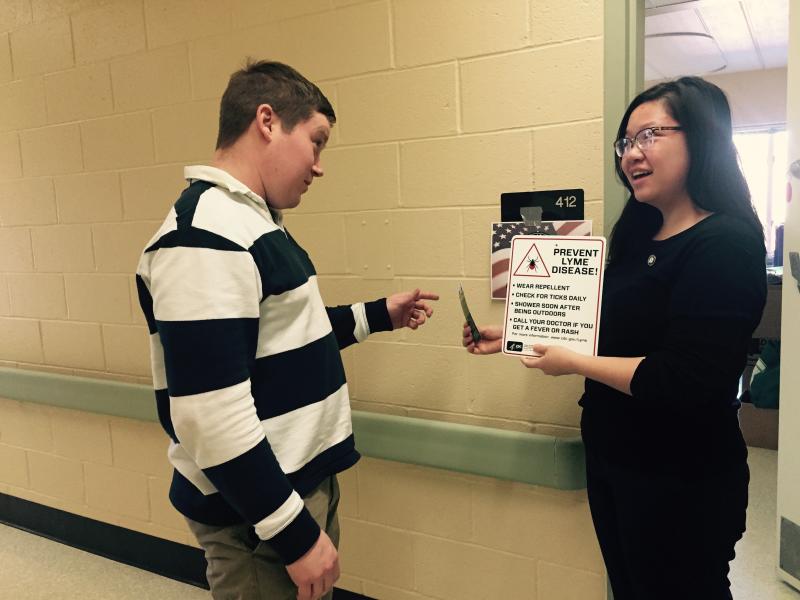Hi, my name is Vivian, and I am your friendly neighborhood Disease Surveillance Specialist! I serve at the Allegheny County Health Department Office of Epidemiology and Biostatistics. My role is to assist in the implementation of Lyme disease and Hepatitis C surveillance systems, as well as to conduct educational outreach about these diseases.

Both Lyme disease and Hepatitis C are infectious diseases that have a significant impact on the residents of Allegheny County. However, accurate figures to assess the disease prevalence in the county are currently unavailable for these diseases. With the current staffing levels, the Allegheny County Health Department has not been able to investigate the overwhelming number of cases of Lyme and Hep C that get reported each year. Obtaining disease surveillance data is important because it can be used to develop targeted prevention and education measures, as well as identify risk factors that can help predict disease outcomes within Allegheny County.
What public health needs does my service address? There are gaps between the community, health care providers, and the Health Department that contribute to inefficiencies in disease reporting which prevents a systematic public health response. In my capacity as a Pittsburgh Health Corps member, I strive to fill in those gaps and act as a liaison between medical providers, the community, and the Health Department. Let me tell you a little bit more about how I bridge the gaps:
First, there is a resource gap at the Health Department. The project of Lyme disease and Hepatitis C surveillance requires manpower that the Health Department would not normally have. I fill in that gap by providing a full-time helping hand. The majority of my service this winter is spent investigating Lyme disease case reports for 2014 and collecting data by contacting patients and health care providers. In the spring I will assist in the development and implementation of Hepatitis C surveillance protocol. This work directly addresses the current gap in knowledge about the disease prevalence of Lyme disease and Hepatitis C in Allegheny County. In addition, my service addresses the communication gap between health care providers and public health officials. When I contact providers, I provide information about PA-NEDSS, an online disease-reporting platform used by the state. I try to facilitate the partnership between doctors and public health workers to streamline the disease surveillance process.
I am also on the frontline for addressing the gap in knowledge that exists in the community about Lyme disease and Hepatitis C. My day-to-day includes answering questions about these diseases when I interview patients over the phone and disseminating educational materials. Additionally, I will be conducting outreach at the Carnegie Science Center’s Sci Tech Days, in the parks, and other community venues.

Lyme disease can be quite debilitating, and it is often complex to diagnose. Because we are seeing an increase in the number of case reports for the county, education and outreach on Lyme is very important. Remember to wear repellent before engaging in outdoor activities, and perform daily tick checks after being outside in a wooded area!
To address the other half of my outreach efforts, Hepatitis C is a contagious liver disease spread through contaminated blood contact. Outreach for this disease to connect patients with resources is crucial right now since the FDA has, for the first time, approved a cure in 2013.
What an exciting time to be serving at the Health Department and to be involved with all these new and important initiatives! My hope is that my work here builds the capacity of the Health Department by facilitating partnerships with the community and health care providers on Lyme and Hepatitis C surveillance.
Here are some tips to prevent Lyme disease!
